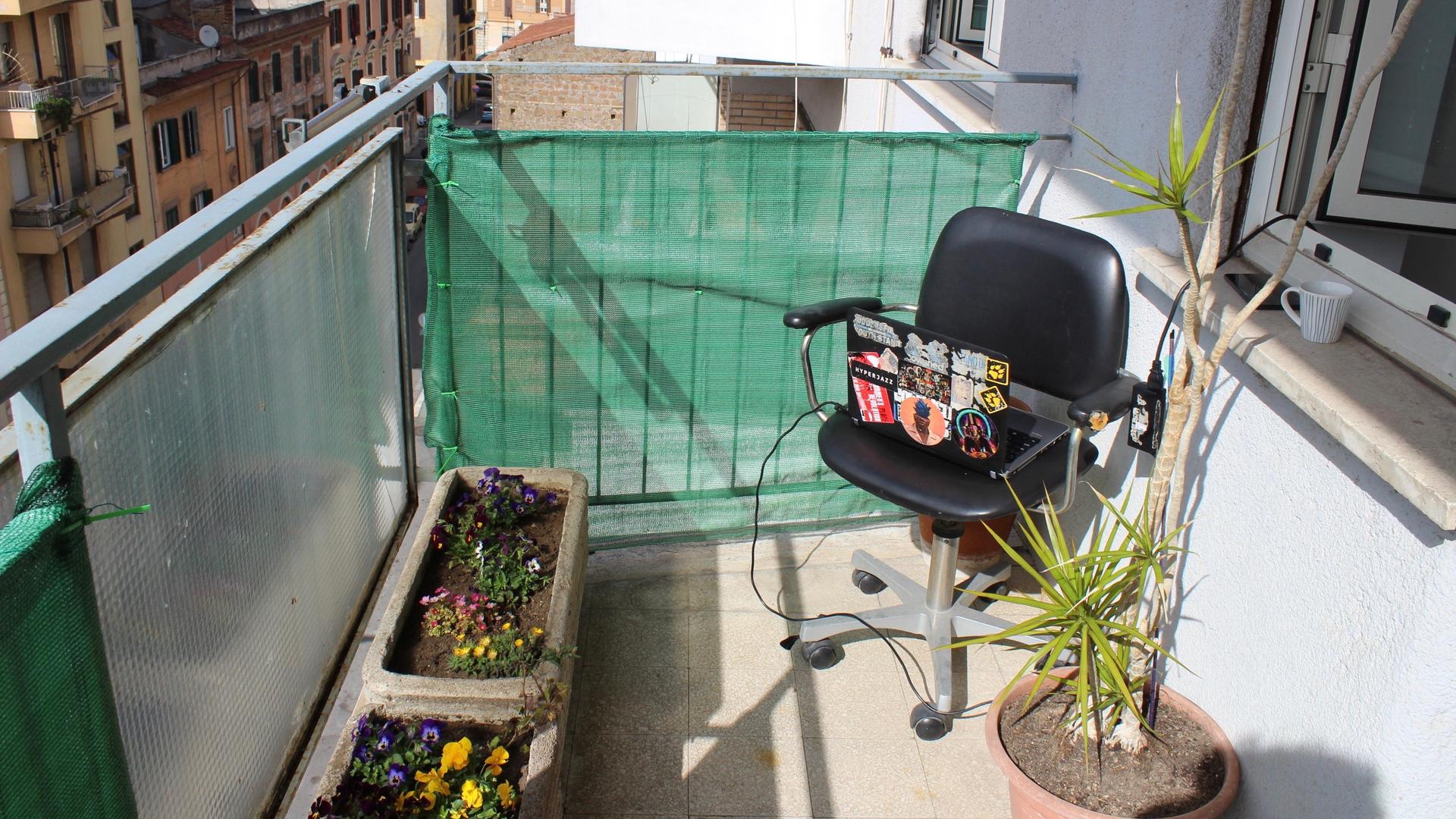I live in Torpignattara, a lively, multicultural neighborhood in Rome, and for the past handful of days, I have been living in semi-quarantine, like 60 million other Italians. It feels like weeks already: I’ve spent a lot of time indoors, seen very few people, and talked about very little other than the coronavirus.
Schools and universities were the first to close in early March. The government published its first social distancing measures — like avoiding handshakes and maintaining a meter distance from others. Right away, I noticed small changes playing out in my neighborhood: People moved away when passing each other on the street, and the few who were not wearing masks covered their faces with scarves. The longtime regulars at my favorite bar greeted each other with an awkward nod of the head, rather than the customary two kisses on the cheek. They didn’t stand close or lean on the bar while drinking their espresso, and they didn’t linger. Small queues started forming on the sidewalk as supermarkets and pharmacies only let in a few people at a time.
Related: Lockdown in Wuhan takes a toll on people’s mental health
On March 7, the whole northern region of Italy — home to 16 million people — was declared a “red zone.” Bars and restaurants could only stay open for limited hours; social gatherings were banned; all museums, gyms, cinemas and theaters were closed; and weddings and funerals were canceled. People were only allowed to travel for urgent health or work reasons, and everyone was encouraged to stay home as much as possible.
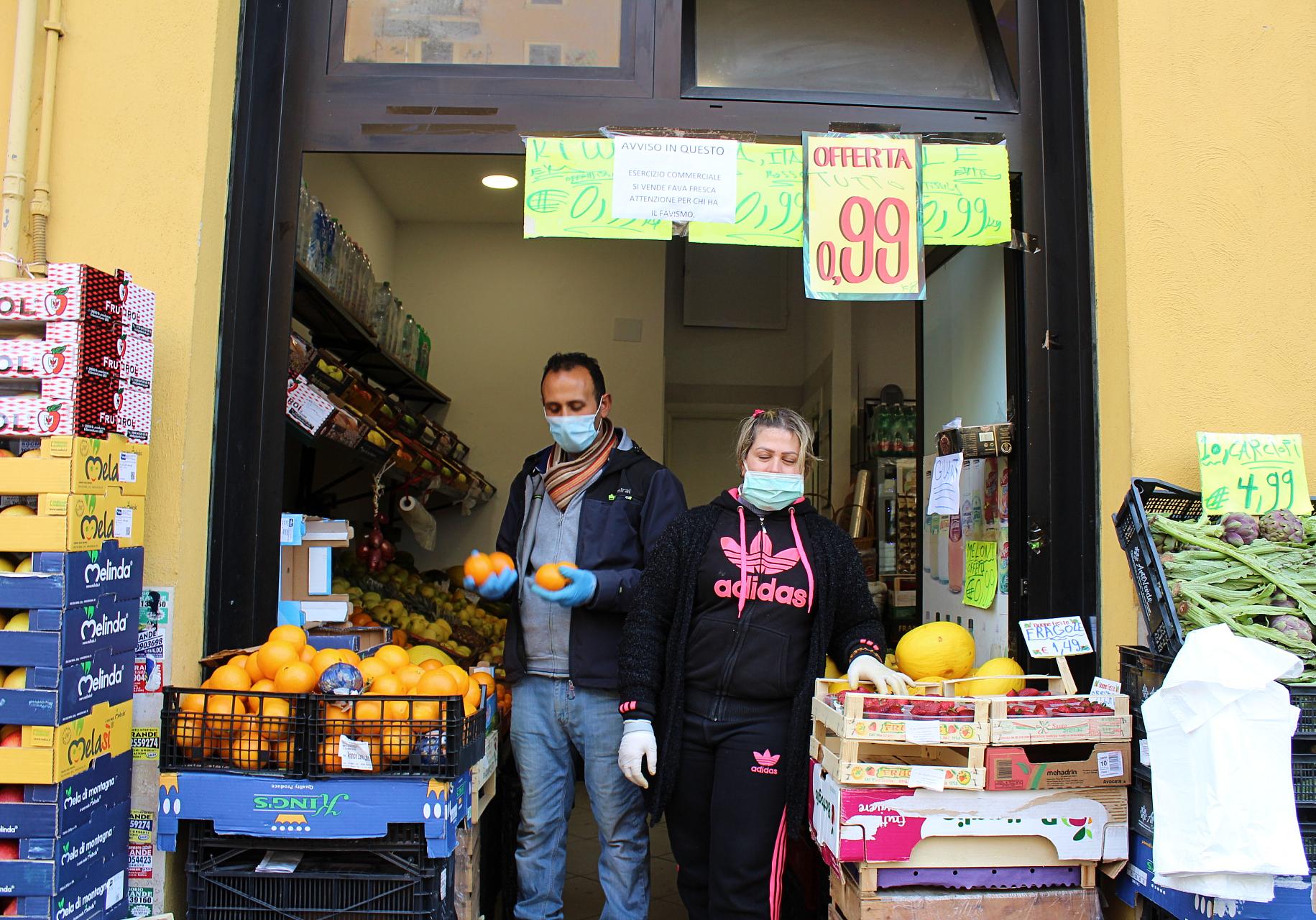
A week ago, we were making jokes about the sci-fi quality of this moment. I was at a friend’s house watching “Contagion” — Steven Soderbergh’s 2011 thriller about the spread of a deadly virus — when we started receiving alerts about the lockdown. It was surreal. We knew things were bad in the north — over 200 people had died at that point, and close to 5,000 in the region were infected — but somehow, until then, we’d struggled to understand the magnitude of it all.
Related: ‘Social isolation’ is the only way to stop coronavirus, says Italian doctor
On Monday, the lockdown was extended to the entire country. We knew it would reach us eventually, but we were surprised it had happened so soon. Although this would make things a lot more complicated, most people agreed it was a necessary step.
When the Prime Minister Giuseppe Conte made the announcement, it was close to midnight, but people rushed out of their homes to the closest 24/7 supermarket, mistakenly believing that they would soon be unable to buy food. But grocery stores, even small ones, have remained open, so I haven’t felt the need to stockpile supplies.
I am a freelance journalist and often work from home, so I’m accustomed to the long hours spent indoors, and the setup of my flat is pretty comfortable. I sit on my sunny, south-facing balcony in the morning, and move around the house as the sun shines through different windows.
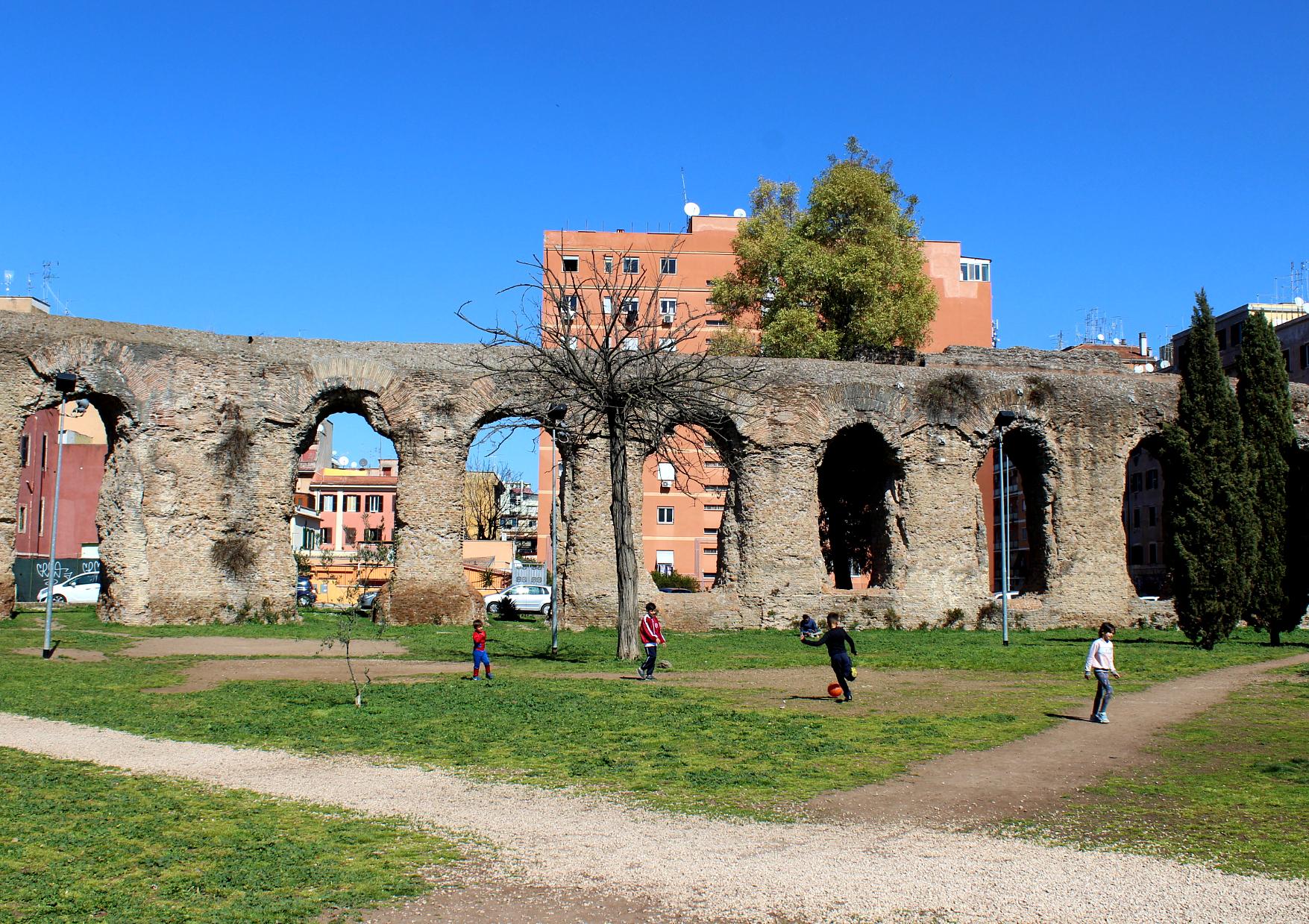
But, in a country where working remotely is uncommon, my Italian friends — many of whom live at home with their parents — are finding the transition difficult. And because most young people here are workers on precarious, short-term contracts, they are afraid of losing their jobs if this goes on much longer. My friend Francesca lives with her husband in a small town near Florence and manages a library. She has been told that, if the situation doesn’t get back to normal by the end of the month, she will likely be laid off.
Related: Travel restrictions could slow coronavirus spread, but they are ‘not enough alone’
“And when the library opens again, I’m afraid we won’t get any public funding, because it will be redirected to more essential services,” she told me on the phone. Her husband runs a travel agency, and all of his bookings for the next few months have been canceled.
Since I’m self-employed, I am one of the few people not massively losing out. I can work remotely, and after the lockdown was announced, I was contacted by media outlets for interviews and stories on the situation. Closed off in my flat, I called and emailed doctors to hear what the situation was like on the front lines. What they told me made my heart sink. “This isn’t just a flu, but a very dangerous disease that causes serious pneumonias in young people too,” one doctor said in an email. “There will be very dark times ahead. I hope I’m wrong.”
Reporting on the situation has been stressful. One story I worked on was particularly harrowing: The family of a woman who died of the coronavirus in Naples was forced to keep her body at home for more than 36 hours, as funeral services refused to transport the body. Her brother had to turn to Facebook to plead for help from authorities.
The mood in the city had been slowly changing over the past few weeks, but the nationwide lockdown marked a turning point. When I ventured out for a short walk on Monday, I saw dozens of vigili (municipal police) patrolling my local park, telling people to go home. A group of teenagers who had been drinking beers in the shade of the ancient aqueduct tried to argue, but the police threatened them with hefty fines.
Everyone, including my friends and I, has started taking the rules seriously. We stay in touch over WhatsApp and share information about the new rules and how they are being enforced, and call to check on each other. We all avoid going out as much as possible, we don’t hug and we obsessively wash our hands. The hashtag #IoRestoACasa (“I’m staying home”) has been trending as doctors and celebrities take to social media to implore Italians to respect the rules.
Related: As Italy’s students rejoice over school closures, families worry about economic toll
There is now the sense that every single one of us has a part to play in stopping the virus, especially to protect the most vulnerable. Handwritten signs from people wanting to help their community have appeared in Rome’s palazzi: “Are you in a difficult situation, and would rather not go out? We can help you with grocery shopping and small errands. We live in the building, and in this emergency, we would like to help those in need,” one reads.
In the meantime, we are inundated by distressing reports from northern cities like Bergamo and Cremona: hospitals are overwhelmed, “like war zones,” and, with a lack of intensive care units, doctors are having to make impossibly hard decisions on who to treat. Every day, we watch as the number of dead continues to climb: 463 on Monday, 631 on Tuesday, 827 on Wednesday.
On Wednesday, it was rumored that even stricter rules would be enforced. Finally, late that night, we watched nervously as Prime Minister Giuseppe Conte delivered his speech to the nation: “Only a few days ago, I asked you to change your life habits, to stay home as much as possible, to only go out when absolutely necessary […] When I adopted these measures, which limit some of our beloved freedoms, I knew it was just a first step, and I knew it wouldn’t be the last.”
We held our breaths. “Now is the moment to take one more step.”
And that was it.
What seemed completely unfathomable only a few weeks ago — days, even — is now reality, and we don’t know for sure when it will end. All restaurants, bars, businesses and nonessential stores are closed until at least March 25 (people have already accepted it may well go on for much longer), and only supermarkets and pharmacies will stay open. Public transport is limited, we are discouraged from going outside, and we have to carry a form to prove we have an “urgent, demonstrable reason” to be outdoors.
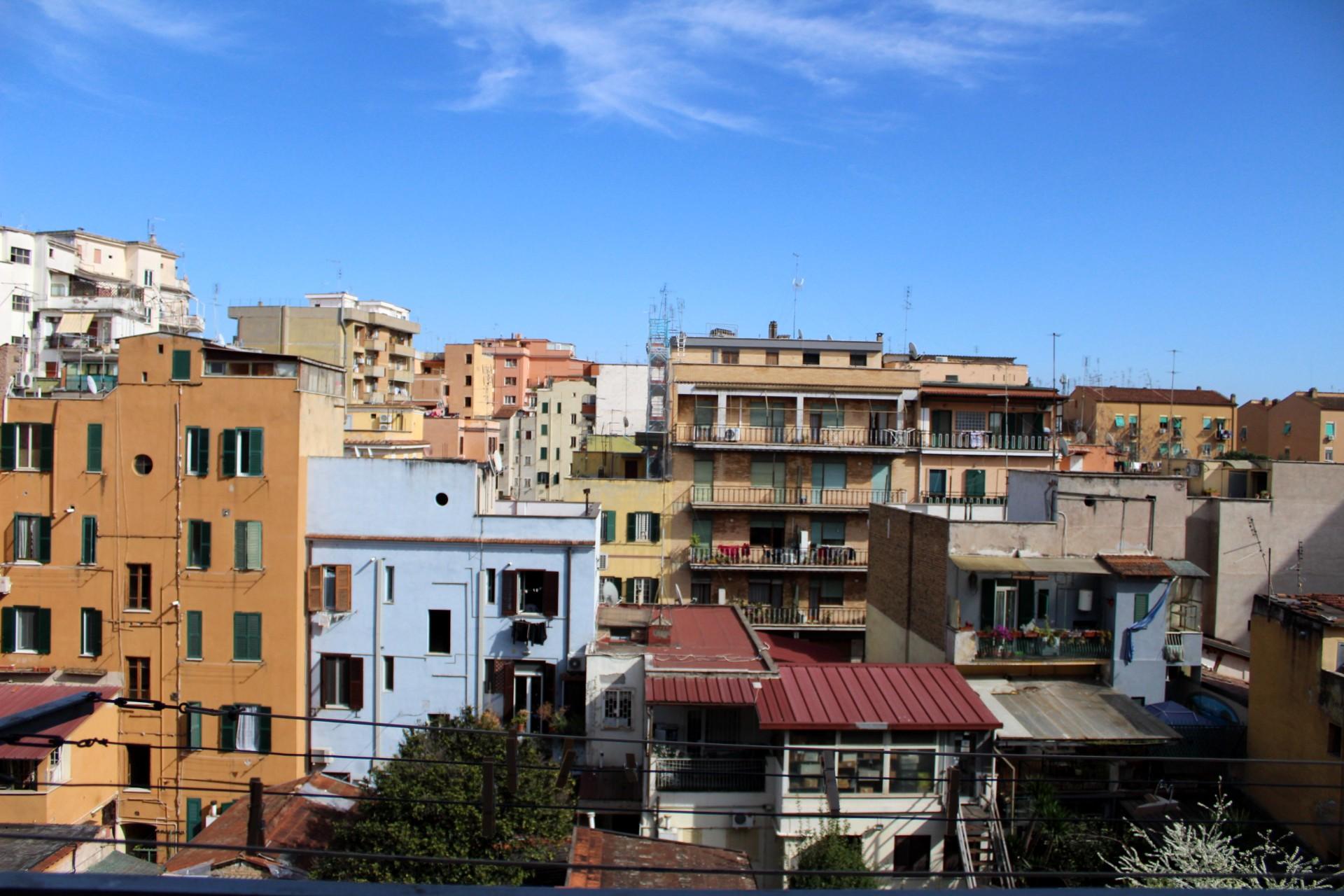
Although these measures have obviously changed my life drastically — before this I used to go to the gym, walk for miles to work from my favorite cafè, and meet my friends for an aperitivo in the evening — I am trying my best to respect them. As Italians begin to understand the enormity of what is happening, the general sense is that we just have to do what has to be done, and that eventually andrà tutto bene — “everything will be fine.” Like most people in their late 20s and early 30s, I am not particularly concerned about my own health, but I do worry about what my parents might be going through.
I called my mum, who is 67 and in good health, as soon as I heard the news. She lives in the countryside 30 kilometers away from Rome, and I’m not sure when I’ll be able to see her next. Although she’s quite isolated, and I worry about how lonely she might get over the next few weeks, she can at least go for a walk in the woods behind the house. She says she’ll be fine, and that she’s safer out there than in the city, but she’s still trying to get her head around the rules: Can she drive to the neighboring village to buy bread? Does she have to fill out a form each time she leaves the house? She and her neighbors have a WhatsApp group, which they use to exchange information and check up on each other. Although people are worried how long the situation will last, no one is panicking yet.
My dad lives in Rome, not far from me, but according to the new rules I am not allowed to go and see him. It’s safer not to, anyway: He’s in his mid-70s and has some minor health issues, and because I’ve come into contact with so many people over the past few weeks — friends, people on public transport, interviewees — I’d rather play it safe. So, we have long phone conversations instead. He tells me he’s OK, but keeps reminding me to be careful, because “this is serious.”
So, this is our new normal. It has taken Italians only a few weeks to go from “but it’s just like the flu” to accepting that living in almost total lockdown is, for now, a necessity. While only a month ago, we poked fun at people being overly paranoid, we are now shocked at the apparent complacency of other countries where life seems to carry on as normal.
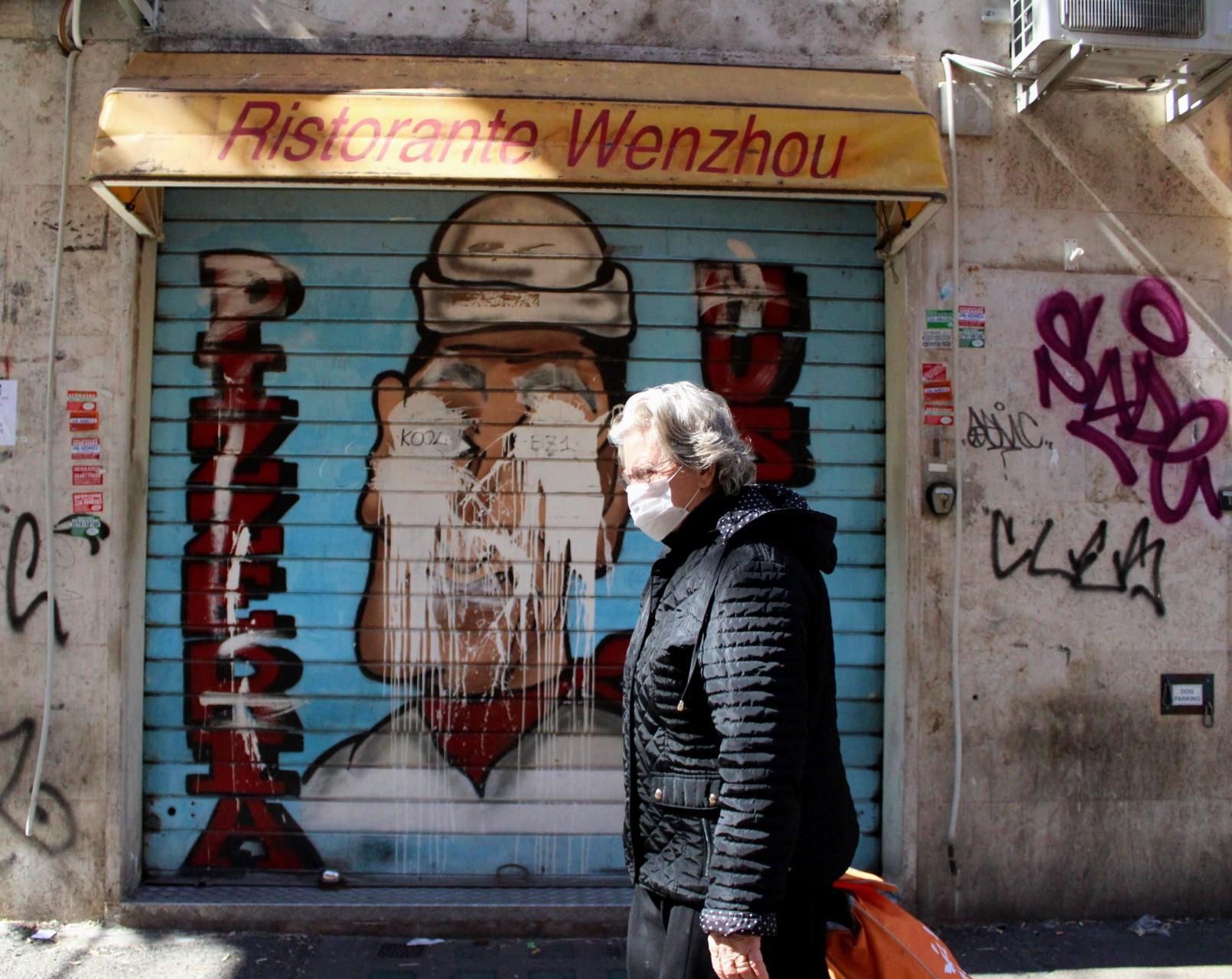
As experts warn that the UK, France, Germany and Spain are only 10 days behind Italy, I feel like I’m watching history repeat itself: First come the memes, the jokes, the ironic crates of Corona beer. Then comes the fear, the panic-buying, the masks. Finally, as the number of victims soars, all that is left is a feeling of deep sadness. As I write this, the figures for today have just been released (we wait for them every day at 5 p.m., like a war bulletin): 189 dead in the last 24 hours, and 1,016 total, as of Thursday evening. This is the highest number of deaths since the beginning of the outbreak.
There is a lot of uncertainty about the future, but there is no doubt that this will have a long-lasting impact on the way we live our lives. And while the human and economic losses will be enormous, we might have something to learn from these weeks — possibly months — of semi-quarantine.
As I sat working on my fifth-floor balcony today, overlooking the terraces and balconies of mismatched three- and four-story buildings below, I saw many of my neighbors — a couple and their young baby across the street, a Chinese man and his pet dog a few windows down, a North African family close by — for the very first time. Usually too busy to even acknowledge each other, today, we exchanged a smile and a few words of encouragement while watching the eerily quiet street below. At one point, I observed a young man from Bangladesh as he loaded a basket full of groceries for an elderly woman to haul up to her third-floor window. It’ll be tough times ahead, but through it all, we might just rediscover the pleasure in looking after each other.
